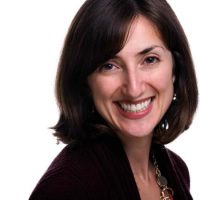Equality by Nick Youngson, CC BY-SA 3.0, Alpha Stock Images
The Varieties of Democracy (V-Dem) Project is gearing up for its next annual survey of the politics of 202 countries across the world. Since 2014, I have been invited to contribute to the award-winning V-Dem dataset as one of the country experts. The V-Dem Project carefully gathers its data and assesses it for accuracy before releasing it to the public, making it one of our most important sources for globally comparative data of modern-day politics. The V-Dem Project also recognizes through its questions and vignettes that there are many different types of democracy (and non-democracy) in the world today. Another aspect worth understanding about the usefulness of the V-Dem Project is its emphasis on the many components of political equality.
What does it mean to have political equality in a country? As Americans, we may think immediately of the right to vote. It is true that the ability to actively participate in the politics of one’s country is an important component of political power, which leads to political equality. Without the ability to vote and participate in other ways (say, through exercising the First Amendment freedoms of speech, assembly, petition, and independent news media), political power would not be distributed evenly in society.
But the V-Dem Project explains political equality as having several additional components, besides “just” voting and other forms of active participation in politics. Political equality also includes the ability to secure representation in one’s political system and influence politics after the elections are over. For a person to have political power, they must have a way of influencing their political system after the voting is over. Usually this influence is carried out indirectly, through one’s elected representatives, who (generally) act as the voice of the people who elected them to office. These representatives are accountable to the people through regular elections, and in between these elections, their constituents can influence their political decisions and actions through communication and pressure. There should be other ways for people to influence their political system too, including the ability to set the agenda through direct ballot initiatives, and the ability to monitor, critique, and improve the implementation of political decisions (through watchdog organizations, free media, and citizen activism). All of these components combine to create true political power in a polity. But there’s one more important aspect!
Besides the obvious activities of voting, representation, and influence over daily political decisions and actions, political equality also includes the ability to participate in civil society organizations, which are voluntary social institutions separate from the government and the business sector that aim to influence the shared public sphere of society. Political science research has shown the political power of civil society organizations, as well as their social power (for networking and other connections), making access to membership and participation in these types of groups an important part of political equality. (This is just one example of why institutional segregation and apartheid policies are antithetical to political equality.)
Now we can define political power as the ability to actively participate in politics, to secure representation and influence politics in between elections, and to participate in civil society organizations. The V-Dem Project then defines political equality as the even distribution of political power throughout all groups in society. As we can imagine, no country will ever receive a perfect score in political equality! Rather, it’s important to consider the level of political equality (as defined by equally distributed political power) across all types of groups in society.
As a thought experiment, consider the different societal groups that the V-Dem Project asks its experts to rank in terms of a country’s level of political equality. One such group is based on socioeconomic status, which is a fancy term for wealth and income (whether one is rich or poor or somewhere in the middle). Do people with more wealth and income have more political power in society than those with less? The V-Dem project provides a ranking from 0 to 4 regarding possible answers to this question, where (0) is that wealthy people enjoy a monopoly on political power and average to poor people have virtually no influence, and (4) is that wealthy people have no more political power than average to poor people. While these two points represent the extremes, for me, the most interesting gradations are the rankings in between. Here is how the V-Dem Project asks its experts to think about the gradations of socioeconomic power in a country:
(1) Wealthy people enjoy a dominant hold on political power. People of average income have little say. Poorer people have essentially no influence.
(2) Wealthy people have a very strong hold on political power. People of average or poorer income have some degree of influence but only on issues that matter less for wealthy people.
(3) Wealthy people have more political power than others. But people of average income have almost as much influence and poor people also have a significant degree of political power.
Where do you think your country falls on this scale? Where would your country fall in terms of other societal groups, such as gender or sexual orientation? What about the political distribution of power in different identity groups (such as race, ethnicity, or religion)? Is political power monopolized by one or more social identity groups? Do these groups constitute a minority or majority of the overall population? Is this power distribution institutionalized or subject to frequent change? Does political power alternate between different societal groups? Do all significant groups in society have a turn to control the seat of power? These questions help make the V-Dem Project’s dataset so valuable, and prompt us to think deeply and critically about political equality in our world today.
Originally published on Jocelyn Sage Mitchell’s website.


 Share on bsky
Share on bsky




Read 0 comments and reply